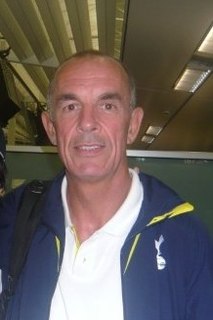A Quote by Josh Linkner
To me, leadership is about first defining purpose. Why does a company exist and what problem does it solve for customers? How is it different than everyone else, and what difference do they plan to make in the world? Companies (and people) should be measured based on the impact they make in the world. If the purpose and solution are solid, the money will follow.
Related Quotes
If organizations are focused on a purpose, something that will make the world a better place and leave a big impact, people can rally behind that mission. If a company is only about making money, it's hard to unleash passion. If there's a big WHY that the company is working to solve, passion will flow like the amazon.
I feel like the closest that we get to fulfilling our calling is making a difference in other people's lives. I feel like it's different for everybody. Our purpose and our calling are different. We're all called to do different things. But some way, somehow, it has to be impacting other people. If not, what are you doing? How does it have an impact? How does it have an eternal impact? It has to be investing in other people, somehow making a difference in their lives. When we do that, I really believe that we'll fulfill why we're here and what we're supposed to do.
Our business is not based on having information about you. You’re not our product. Our product are these, and this watch, and Macs and so forth. And so we run a very different company. I think everyone has to ask, how do companies make their money? Follow the money. And if they’re making money mainly by collecting gobs of personal data, I think you have a right to be worried.
In my opinion, you have to have a vision for how you add value to others through your product or service. Why do you exist? All of us need a reason to get out of bed in the morning and enthusiastically approach each day. Some people say money is their purpose - - my reaction is that, if money is your purpose, you risk running out steam well before you make a lot of money. Money is an outcome that comes as a result of adding value for a sustained period of time. I encourage people and companies to search for and articulate the vision for why they are doing what they're doing.
What does purpose mean? It means the deepest desire for our short lives to mean something. . . . To speak a language of purpose is to return to first principles and to be able to answer, in plain English, the plain questions of Why? Why should we chip in to help someone else? Why should we defer gratification? Why should we care about the long term? Why should we trust anyone who seems to be limiting our ability to do what we want?
I often hear that it's unfair that athletes should make what they make versus teachers, because who's more important. But that's not how the market works. Markets don't sign things. You know what you're worth is what somebody will pay you. It's not some arbitrary - the purpose of a company is not to create jobs and health care. That's not why they exist. And it's not to create fairness or any of that. That's not why people form businesses and try to sell a service or a product.
Thus you see, most noble Sir, how this type of solution to the Königsberg bridge problem bears little relationship to mathematics, and I do not understand why you expect a mathematician to produce it, rather than anyone else, for the solution is based on reason alone, and its discovery does not depend on any mathematical principle.
Often people say they can't base their strategies on customers because customers make unreasonable requests and because customers vary too much. Such opinions reveal serious misconceptions. The truly outside-in company definitely does not try to serve all the needs of its customers. Instead, its managers are clear about what their organization can and should do for customers, and whatever they do they do well. They focus.
The goal of a private company is, first, zero to one. Get past the product market fit, figure out whether people actually care about what you're trying to build and someone will pay you money for that. That's the zero to one problem. So scaling, one through N, is figuring out can you do that at scale and how big is the scale. And when people pay you more than what it costs for you to make it, does that equation end up leaving you with money left over, i.e. profits.


































